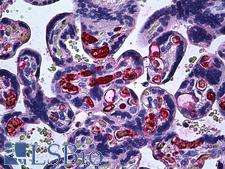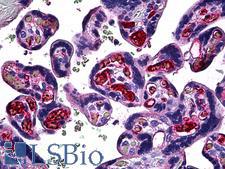Login
Registration enables users to use special features of this website, such as past
order histories, retained contact details for faster checkout, review submissions, and special promotions.
order histories, retained contact details for faster checkout, review submissions, and special promotions.
Forgot password?
Registration enables users to use special features of this website, such as past
order histories, retained contact details for faster checkout, review submissions, and special promotions.
order histories, retained contact details for faster checkout, review submissions, and special promotions.
Quick Order
Products
Antibodies
ELISA and Assay Kits
Research Areas
Infectious Disease
Resources
Purchasing
Reference Material
Contact Us
Location
Corporate Headquarters
Vector Laboratories, Inc.
6737 Mowry Ave
Newark, CA 94560
United States
Telephone Numbers
Customer Service: (800) 227-6666 / (650) 697-3600
Contact Us
Additional Contact Details
Login
Registration enables users to use special features of this website, such as past
order histories, retained contact details for faster checkout, review submissions, and special promotions.
order histories, retained contact details for faster checkout, review submissions, and special promotions.
Forgot password?
Registration enables users to use special features of this website, such as past
order histories, retained contact details for faster checkout, review submissions, and special promotions.
order histories, retained contact details for faster checkout, review submissions, and special promotions.
Quick Order
PathPlusTM FGF1 / Acidic FGF Antibodies
FGF1 (Acidic fibroblast growth factor 1) is a member of the fibroblast growth factor family and is involved in embryonic development and organogenesis, morphogenesis, cell growth, tissue repair and tumorigenesis. It regulates endothelial cell migration, proliferation and angiogenesis, and it is involved in learning where it is necessary for memory encoding and enhancement. FGF1 is also an important hormone in metabolic processes including the management of nutrient stress, insulin sensitivity and glycemic control, and it is of interest in injection therapies for type 2 diabetes mellitus. In immunohistochemistry, FGF1 is primarily positive in the cytoplasm of neurons and endothelial cells in the brain, but it also shows positivity in heart muscle, renal tissue, and breast tissue.
References: Nat Rev Endocrinol. 2017 Oct;13(10):599-609, PMID: 28664920; Brain Res Bull. 2018 Jul;141:3-12, PMID: 29477835; Neuron. 1991 Sep;7(3):349-64, PMID: 1716928
2 PathPlusTM Antibodies


☰ Filters
Products
Antibodies
(2)
Type
Primary
(2)
Target
FGF1 / Acidic FGF
(2)
Reactivity
Human
(2)
Application
IHC
(2)
IHC-P
(2)
WB
(2)
ELISA
(2)
IF
(2)
IP
(1)
Host
mouse
(2)
Product Group
PathPlus Neuro
(2)
Isotype
IgG1,k
(2)
Clonality
monoclonal mc
(2)
Clone
1F9
(1)
2E12
(1)
Format
Unconjugated
(2)
Publications
No
(2)

Neuroscience
FGF1 / Acidic FGF Mouse anti-Human Monoclonal (2E12) Antibody
Human
ELISA, IF, IHC, IHC-P, IP, WB
Unconjugated
50 µg/$375

Neuroscience
FGF1 / Acidic FGF Mouse anti-Human Monoclonal (1F9) Antibody
Human
ELISA, IF, IHC, IHC-P, WB
Unconjugated
50 µg/$460
Viewing 1-2
of 2
product results











